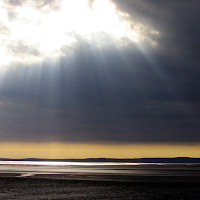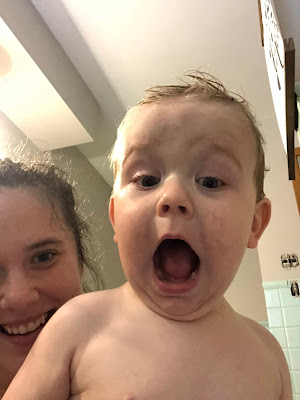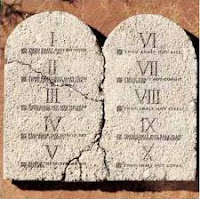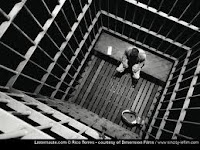misunderstood, misused, or overlooked. To help unmask the intrigue and bring it
out of obscurity, I asked three priests–Fr. Mitch Pacwa S.J., Fr. John McCloskey
III STD, and Fr. Wayne Sattler –to share their thoughts on spiritual
direction. I will introduce each separately, and then offer their reflections.
 Father Mitch Pacwa S.J. is perhaps best
Father Mitch Pacwa S.J. is perhaps bestknown as a host on EWTN TV and radio. He is an
American Jesuit priest, popular author and can celebrate liturgy in both
the Roman and Maronite rites. He is President and Founder of Ignatius
Productions. Fr. Pacwa has a
PhD in Old Testament, a Master of Divinity, and a Bachelor of Sacred Theology,
and is an accomplished linguist, speaking thirteen different ancient and modern
languages.
the faith–reading about it and fully practicing it–isn’t that enough?
that is in the “fully practicing.” If one is fully practicing, then
that is all one needs, since the full practice of the faith encompasses all of
life. The problem is that many people are immature in understanding the full
practice of the faith. For that reason, most people, especially when they are
young, need a spiritual director who is mature in the faith and its lived
experience. The director can help point out the deficiencies in living out and
understanding the faith that the directee might not know on his or her own.
had spiritual directors?
surveyed the literature in such a way as to know whether most saints had
spiritual directors, but it certainly appears to be the case based on what I
know about their lives. This is especially true as they enter the spiritual
life, particularly when they are religious or clergy. Spiritual direction is
normal from the novitiate forward in religious life, and in the seminary. Most
of the lay saints have had spiritual directors, though this is not always so
well known about the martyrs, since the way they died overshadows much of their
earlier life.
everyone?
everyone can benefit from a spiritual director, but it is frequently hard to
find one, particularly since so many clergy and religious are overwhelmed with
work these days. Sometimes, we need to find a close friend, that is, one who
loves us enough to accept us, no matter what we tell them, and who is seeking
virtue and the love of God as the goal of life. Such a friend might well help
us in spiritual direction. However, when the friend is a peer, there may be the
problem of the lack of experience, no matter how noble their virtues and
aspirations. For that reason it is good to also consult with someone who is
more developed in the spiritual life, whether lay, religious, or clerical.
Institute in Washington DC. and was a chaplain at Princeton University from
1985-90. As a priest of thirty years who has provided spiritual
direction to a wide range of souls, he states that nothing is more important
than the aggressive pursuit of advancing our relationship with God.
lay people to find a spiritual director?
if a person wants to grow on apostolic holiness. Those of us who are sincere practicing
Catholics know that our most important work in this life is to prepare
ourselves for the next one where we really will be immortal.
is spiritual directors?
have their own spiritual director.
spiritual directors?
spiritual direction and are receiving on-going formation, preferably in a
specific spirituality.
direction?
become a saint.
using literature and other Catholic resources to nourish and direct their
souls?
that should part of spiritual direction–to get recommended
spiritual reading.
Fr. Wayne V. Sattler is a priest for the Diocese of Bismarck. For six years he lived as a hermit. He currently resides in the parish of St. Anne’s in Bismarck and provides assistance to the Permanent Diaconate Formation Program. He has given numerous retreats, particularly for the Missionaries of Charity.
find a spiritual director.
priests are not automatically qualified to be spiritual directors. In my
opinion, spiritual direction is a charism given by God. Although proper
education is an important aspect of good direction, it alone assures
nothing. It is not enough to have a “certificate” to assure that one is
in sound spiritual hands. St. John of the Cross warns us to take great
care into whose hands we entrust our soul. In “Seeking Spiritual
Direction,” Fr. Thomas Dubay spelled out six qualities that would be good to
look for in a spiritual director;
personal.
Church history painfully show
deep prayer nor heroic holiness.
understanding of psychology, ability to recognize human woundedness
to know when to make referrals
they exude the same aforementioned qualities
and charism.
of spiritual direction?
purpose is to preserve one from being
deceived in the spiritual life. A director is an objective voice to help
us see where we really are in our spiritual journey. If our sincere
desire is holiness, we should be humble enough to realize that we need a guide,
for we don’t always see ourselves are we are truly seen.
is important to remember that the true spiritual director is the Holy
Spirit. He is free to use what He wills to direct us. But just as
He has chosen to use the instrument of a human to bestow upon us the rich gift
of the Sacramental life, there really is no substitute for a spiritual director
in the flesh. A book is simply not able to give real personal insight,
and the spiritual director can lead us to materials that will really help us,
and not just ones of our own choosing.
Spiritual Direction, Navigating
the Interior Life by Dan
Burke, explains what it’s about, how to get the most out of it, and how to find
a spiritual director. You can also learn more and gain valuable insight at Roman Catholic Spiritual
Direction.
through http://www.NavigatingtheInteriorLife.com/ go towards
providing free faithful Catholic resources to the spiritually hungry around the
world. Books are provided for free to the faithful poor and those who have
taken a vow of poverty.










Do you have any more info on how a layperson (or consecrated) becomes qualified to be a spiritual director? I know I could benefit from one, but hesitate to have a male spiritual director (i.e priest) because I don't want to risk becoming closer to him spiritually than to my husband. Also, is there some kind of "Seal" during spiritual direction, like in Confession? (I know there is no sacramental seal, but are there guidelines for how confidential Spiritual Direction is?) Thanks!
Rose – check with your Archdiocese. My local diocese has a program like this for the laity.
Rose, those are very good thoughts and concerns. You are very wise to consider such aspects. For priests, breaking the seal essentially removes them from active priesthood. Spiritual directors are expected to hold the director/directee relationship in the same regard. Keep in mind that i am not an expert, but read Dan Burke's book and have a spiritual director myself. Any professional such as counselors, psychiatrists, etc. are held to the standard that everything talked about is done in confidence. Outside the priesthood, it's a little different, but certainly anyone who broke confidence, should be reported and NEVER provide spiritual direction again. Since the relationship is between them and God and you, it should be as secure a relationship as possible.
I will ask Dan Burke if he can also comment on your questions.